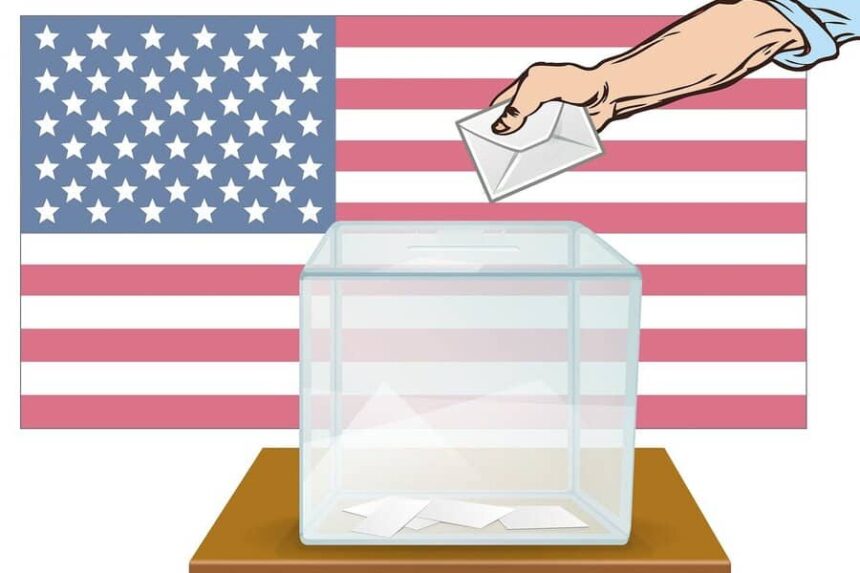The election of 1796 marked a milestone in American history as it was the first truly contested presidential election. Many people wonder, what was the outcome of the election of 1796? The election brought about the first transfer of presidential power from one leader to another and saw the rise of political parties. This pivotal event shaped how Americans viewed their democracy, setting a precedent for future elections.
- Setting the Scene – Political Climate Before the Election of 1796
- The Birth of Political Parties
- Washington’s Farewell Address
- Public Concerns and National Issues
- Early Electoral Process
- Importance of Washington’s Legacy
- Candidates in the Election of 1796
- John Adams – The Federalist Candidate
- Thomas Jefferson – The Democratic-Republican Candidate
- Other Notable Figures and Influences
- Campaign Strategies and Public Perceptions
- Ideological Differences
- The Electoral Process and Results of 1796
- Why the Election of 1796 Was So Significant?
- Introduction of Political Parties
- A Peaceful Transfer of Power
- Highlighting Electoral System Flaws
- Influence on U.S. Foreign Policy
- Strengthening the Role of Public Opinion
- Impacts of the 1796 Election on Future U.S. Politics
- Establishment of the Two-Party System
- The 12th Amendment
- Increased Focus on Electoral Strategy
- Development of Political Campaigning
- Legacy of Ideological Division
- Conclusion
- FAQ’s
In this article, we’ll explore the outcome of the 1796 election, covering the candidates, the political climate, and the election’s impact on the future of American politics. By understanding the significance of this early election, readers gain insight into how political processes and party systems evolved in the United States.
What was the outcome of the election of 1796?
The 1796 election resulted in John Adams, a Federalist, becoming the second President of the United States, with Thomas Jefferson, a Democratic-Republican, as Vice President. This election was historic because it was the first contested election and introduced political parties into the presidential race. It set a precedent for future elections and highlighted the tensions between emerging political ideologies.
Setting the Scene – Political Climate Before the Election of 1796
To understand what was the outcome of the election of 1796, it’s essential to examine the political context. This election followed George Washington’s decision not to seek a third term, sparking competition for the presidency and highlighting ideological divisions within the young nation.
The Birth of Political Parties
The election of 1796 saw the emergence of two primary political parties: the Federalists and the Democratic-Republicans. The Federalists, led by Alexander Hamilton and John Adams, advocated for a strong central government, while the Democratic-Republicans, led by Thomas Jefferson, favored states’ rights and a more decentralized government.
Washington’s Farewell Address
In his farewell address, Washington warned against political parties, fearing they would divide the nation. Despite his concerns, factions had already begun to form, shaping the political landscape for the 1796 election.
Public Concerns and National Issues
The political climate of 1796 was influenced by foreign relations, particularly with Britain and France. Federalists leaned toward British alignment, while Democratic-Republicans were sympathetic to France. This division played a significant role in shaping voter preferences.
Early Electoral Process
In 1796, the electoral process differed significantly from today. Electors cast two votes, with the candidate receiving the most votes becoming President and the runner-up becoming Vice President.
Importance of Washington’s Legacy
Washington’s presidency set many precedents, but his departure left a void in leadership. The 1796 election was pivotal as it marked the first transfer of power, testing the stability of the young republic.
Candidates in the Election of 1796
John Adams – The Federalist Candidate
John Adams, Washington’s Vice President, was the Federalist candidate. He advocated for a strong federal government and maintained a reputation for diplomacy and intelligence. His support base included Northeastern states, where Federalist policies were popular.
Thomas Jefferson – The Democratic-Republican Candidate
Thomas Jefferson, a former Secretary of State, was the Democratic-Republican candidate. He represented the interests of rural farmers and the Southern states. Jefferson’s vision for the country emphasized states’ rights and an agrarian-based economy.
Other Notable Figures and Influences
Alexander Hamilton, though not a candidate, heavily influenced the Federalist campaign. His political strategies shaped how the Federalists approached the election and the electoral process.
Campaign Strategies and Public Perceptions
In 1796, campaigning was informal by today’s standards, but each side used newspapers and influential supporters to sway public opinion. This approach laid the groundwork for future political campaigning in the U.S.
Ideological Differences
The ideological differences between Adams and Jefferson highlighted the emerging divide in American politics, setting the stage for future partisan conflicts and the development of the two-party system.
The Electoral Process and Results of 1796
The unique electoral process in 1796 affected what was the outcome of the election of 1796. Here’s a breakdown of how the process unfolded.
- Electoral Votes Cast by State: Each state chose electors who cast two votes, with the most votes determining the President and the second-most votes determining the Vice President.
- Close Vote Count: Adams narrowly defeated Jefferson, with 71 electoral votes to Jefferson’s 68.
- Unexpected Vice Presidential Outcome: Due to the electoral rules, Jefferson, from an opposing party, became Vice President—a unique situation that highlighted the flaws in the original electoral system.
- Impact on Future Elections: The outcome of this election prompted later changes to the electoral process, including the 12th Amendment, which allowed separate votes for President and Vice President.
This process shaped the election outcome, demonstrating the need for a revised approach to prevent political opponents from holding the two highest offices simultaneously.
Why the Election of 1796 Was So Significant?
The 1796 election was significant for several reasons. Here’s why this event remains a crucial moment in American history.
Introduction of Political Parties
For the first time, political parties played a prominent role in influencing voters and shaping policies. The election solidified the two-party system that continues to this day.
A Peaceful Transfer of Power
This was the first transfer of presidential power, setting a standard for future elections. The peaceful transition demonstrated the resilience of the democratic process.
Highlighting Electoral System Flaws
The election of 1796 exposed issues within the electoral process. The odd outcome of having political rivals as President and Vice President underscored the need for electoral reform.
Influence on U.S. Foreign Policy
Foreign policy played a major role, with Federalists favoring Britain and Democratic-Republicans favoring France. The election outcome affected subsequent diplomatic decisions.
Strengthening the Role of Public Opinion
The election demonstrated the growing power of public opinion and media influence, as newspapers and public figures increasingly shaped the voters’ perspectives.
Impacts of the 1796 Election on Future U.S. Politics
Understanding what was the outcome of the election of 1796 is essential for grasping its long-lasting impacts on American politics.
Establishment of the Two-Party System
The election reinforced the divide between Federalists and Democratic-Republicans, marking the beginning of a two-party system that still exists today.
The 12th Amendment
The unusual outcome, with political rivals as President and Vice President, prompted the creation of the 12th Amendment, which modified the electoral process to allow separate votes for each position.
Increased Focus on Electoral Strategy
The close election led to a focus on electoral strategy, with parties realizing the importance of appealing to various regions and social groups.
Development of Political Campaigning
Though informal by today’s standards, the strategies used in 1796 set the foundation for more organized political campaigns and voter outreach in future elections.
Legacy of Ideological Division
The ideological clash between Federalists and Democratic-Republicans created a lasting legacy of political division that would shape debates for decades.
Conclusion
This election ended with John Adams becoming President and Thomas Jefferson, his political rival, becoming Vice President. This outcome highlighted the early political divides within the United States and exposed the need for reforms in the electoral system. The election of 1796 remains a landmark event in American history, as it introduced political parties, reinforced the democratic process, and ultimately led to important changes in how the nation selects its leaders.
FAQ’s
Q. What was the outcome of the election of 1796?
A. John Adams won the presidency, and Thomas Jefferson became Vice President despite being from opposing political parties.
Q. Why was the election of 1796 significant?
A. This election marked the first transfer of power and introduced political parties, setting a precedent for future U.S. elections.
Q. Who were the candidates in the election of 1796?
A. John Adams for the Federalists and Thomas Jefferson for the Democratic-Republicans were primary candidates.
Q. What did the election of 1796 reveal about the U.S. electoral system?
A. The election exposed flaws, particularly the issue of rivals serving as President and Vice President, leading to the 12th Amendment.
Q. How did the 1796 election impact future U.S. politics?
A. It strengthened the two-party system, led to electoral reforms, and influenced the development of political campaigns in the U.S.




